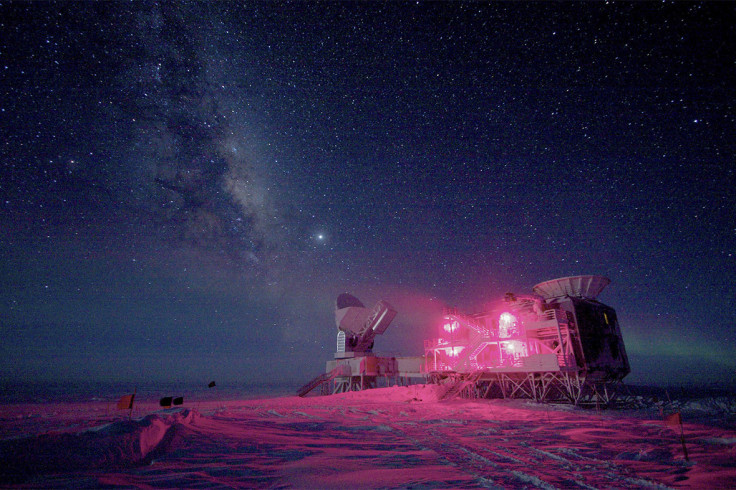Big Bang not the start? Quantum theory suggests universe has existed forever

The Big Bang did not mark the start of the universe, instead there was no beginning and there will be no end, scientists have suggested.
Physicists from the University of Lethbridge in Canada and Benha University in Egypt have created a new model that applies quantum correction terms to Einstein's theory of general relativity.
Einstein's theory predicts the universe came from an infinitely dense single point that then exploded outwards – the Big Bang. However, this state – singularity – creates a number of problems for scientists, including the fact it does not account for what happened before or at the moment of the Big Bang.
The physicists have now incorporated principles from quantum mechanics that suggest the universe could have always existed in a "quantum potential". This, in turn, could have eventually collapsed in the hot explosion that was the Big Bang.
Published in Physics Letters B, the scientists also say their model could account for dark matter and dark energy.
The scientists combined the work of David Bohm, who in the 1950s looked to use quantum theory to describe the shortest paths between two points on a curved surface, and Amal Kumar Raychaudhuri, who worked on the formation of singularities.
Using a quantum-corrected Raychaudhuri equation, they were able to create new equations to describe the expansion and evolution of the universe within general relativity. They showed that quantum particles can never meet or cross paths, phys.org explains.
"As far as we can see, since different points in the universe never actually converged in the past, it did not have a beginning," study author Professor Saurya Das told the MailOnline.

"It lasted forever. It will also not have an end ... In other words, there is no singularity. The universe could have lasted forever. It could have gone through cycles of being small and big. Or it could have been created much earlier."
This idea does not, however, suggest there was no Big Bang. Brian Koberlein, a researcher at Rochester Institute of Technology, wrote in a blog post that there was some confusion over what the physicists were suggesting.
"A new paper in Physical Letters B has the popular press wondering if there was no Big Bang, but the actual paper claims no such thing... The Big Bang is a robust scientific theory that isn't going away, and this new paper does nothing to question its legitimacy."
He said they used the Raychaudhuri equation with "a few quantum tweaks" – it uses some aspects of quantum theory, but is not a complete quantum gravity model because we do not have this. He also notes the theory is basic and the idea of an eternal universe is not new.
"What the authors show is that their modified Raychaudhuri model eliminates the initial singularity of the big bang. It also predicts a cosmological constant, which is a proposed mechanism for dark energy. Their model is really basic, but this first result shows that this type of approach could work."
© Copyright IBTimes 2024. All rights reserved.






